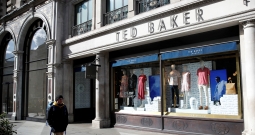Wilko Collapse and What it Means for the Retail Sector
Wilko, the UK's popular variety retailer, is on the brink of going into administration. This is a major blow to the retail sector, and it comes at a time when the industry is already facing significant challenges.
There are a number of factors that have contributed to Wilko's collapse.
- The cost of living crisis is having a major impact on consumer spending. The Consumer Price Index (CPI) in the UK has been rising steadily in recent months, and it is now at its highest level in 40 years. This is putting a strain on household budgets, and it is leading to a decline in discretionary spending.
According to a recent report by the British Retail Consortium (BRC), the cost of living crisis is having a "significant impact" on consumer spending. The report found that shoppers are cutting back on non-essential items, such as clothing and homewares. This is having a knock-on effect on retailers, many of whom are reporting declining sales.
- The rise of online shopping is putting pressure on brick-and-mortar retailers. The growth of online shopping has been a major challenge for the retail sector in recent years. Wilko has been slow to adapt to this trend, and it has lost market share to online retailers.
According to a recent report by PwC, the UK retail industry is expected to lose £100 billion in sales to online retailers by 2025. This is a major threat to brick-and-mortar retailers, who need to find ways to compete with online retailers.
- Retailers need to adapt to the digital age or risk going out of business. The retail landscape is changing rapidly, and retailers need to adapt to the digital age or risk going out of business. This means investing in online sales, developing a strong social media presence, and using data analytics to improve customer experience.
A recent study by the University of Oxford found that retailers that fail to adapt to the digital age are at risk of going out of business within five years. This is a wake-up call for retailers, who need to take action now to avoid the same fate as Wilko.
- Rising costs are putting a strain on retailers' margins. The price of goods and services has been increasing in recent months, and this is putting a strain on retailers' margins. This is especially true for retailers that rely on imported goods, as the cost of shipping has also been rising.
According to a recent report by the Confederation of British Industry (CBI), the cost of doing business in the UK is rising at its fastest pace in 20 years. This is putting a strain on retailers' margins, and it is leading to higher prices for consumers.
How the Wilko Collapse Will Affect People's Jobs
The Wilko collapse is a major blow to the UK economy, and it is likely to have a significant impact on people's jobs. The company employs over 20,000 people in the UK, and many of these jobs will be lost as a result of the administration.
The Wilko collapse is likely to have a ripple effect on other retailers, as well. As consumers become more cautious with their spending, they are likely to shop around for better deals. This could lead to a decline in sales for other retailers, which could result in job losses.
For example, a recent report by the British Retail Consortium (BRC) found that the retail sector is expected to shed 100,000 jobs in the UK by 2023. This is due to a number of factors, including the rise of online shopping, the cost of living crisis, and the ongoing pandemic.
The Wilko collapse is a sad day for the UK economy, and it is a wake-up call for retailers. The retail landscape is changing rapidly, and retailers need to adapt or risk going out of business.
As a result of the Wilko collapse, many people are likely to lose their jobs. This could have a significant impact on their families and their communities. The government will need to provide support to those who are affected by the collapse, and it will need to take steps to help the retail sector adapt to the changing landscape.
The government has already announced a number of measures to help businesses, including a £15 billion package of support for the retail sector. This includes a £3 billion fund to help retailers invest in their digital infrastructure and a £1 billion fund to help retailers recruit and train new staff.
The government will need to continue to provide support to the retail sector, and it will need to take steps to address the underlying challenges facing the industry. This includes the need to reduce the cost of business, the need to improve skills and productivity, and the need to make the UK a more attractive place to invest.
The Wilko collapse is a reminder that the retail sector is facing significant challenges. Retailers that fail to adapt to the changing landscape will be at risk of going out of business, and this could lead to job losses for thousands of people. The government will need to take action to help the retail sector adapt, and it will need to provide support to those who are affected by the collapse.
______________
If your job security has been affected by this or other events in the ever-changing retail landscape, do not hesitate to get in touch with our team or browse our current jobs.






















